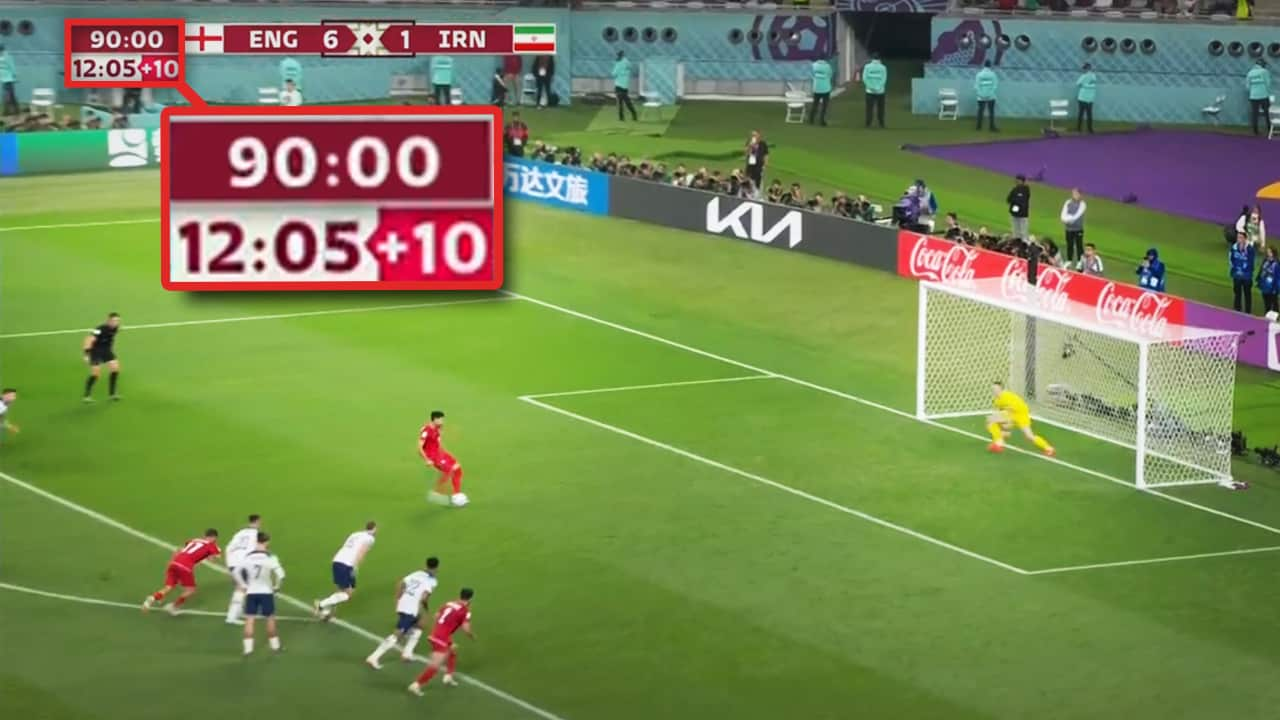Key Points
- No, you're not imagining it: 2022 FIFA World Cup matches are running longer than usual.
- England beat Iran in a record-breaking 117 minute match.
- From time wasting to injuries, here's why fans are seeing longer games.
Fans who can't get enough football have been spoilt at the , with record-breaking amounts of overtime added to matches.
Football games run for 90 minutes, with two 45-minute halves, plus stoppage/injury time at the end of each half to make up for any delays to play.
While stoppage time has traditionally been sparingly allocated, with fans often used to seeing just a few additional minutes added at the end of a half despite sometimes lengthy delays to play, the World Cup in Qatar has seen many games run for well beyond the traditional 90 minutes.
So far, there has been more than three hours' worth of stoppage time added in total to matches at this World Cup, a tally that equates to more than two extra games of football for fans.

Source: SBS News
That match clocked in at a whopping 117 minutes and 16 seconds, with 14 minutes and eight seconds of time added to the first half following a head injury to Iran's goalkeeper Alireza Beiranvand, and 13 minutes and eight seconds played at the end of the second half.

There was a long delay in the first half of the England v Iran World Cup match while Iran's goalkeeper Alireza Beiranvand was assessed after he and a teammate collided heavily. Source: Getty / Clive Brunskill
'Unacceptable': What has FIFA said about match length?
Goal celebrations, treatment of injuries, video referee (VAR) deliberations, substitutions, penalties, and yellow and red cards are just some of the interruptions that can cut into playing time.
FIFA has made it clear to players and fans that match time at the Qatar World Cup will be extended to account for these delays.

The stadium scoreboard indicates 14 minutes of added time at the end of the first half in the England v Iran World Cup game. Source: Getty / Martin Rickett/PA Wire
Mr Collina said FIFA intended to double down on efforts it started at the 2018 Russia World Cup to counter delays that eat into active playing time.
"In Russia, we tried to be more accurate in compensating for time lost during games and that's why you saw six, seven or even eight minutes added on," the celebrated former World Cup referee .
"Think about it: if you have three goals in a half, you'll probably lose four or five minutes in total to celebrations and the restart."

Mitch Duke (centre) celebrates scoring for Australia against Tunisia in their World Cup match on Saturday. FIFA is directing that the time spent celebrating goals is added to stoppage time. Source: Getty / Robert Cianflone
“We recommended our referees to be very accurate in calculating the time to be added at the end of each half to compensate the time lost," he said.
“What we want to avoid is matches lasting 42, 43, 44, 45 minutes of active play. This is unacceptable."
Watch every match of the FIFA World Cup 2022, live, free and exclusive on SBS.


